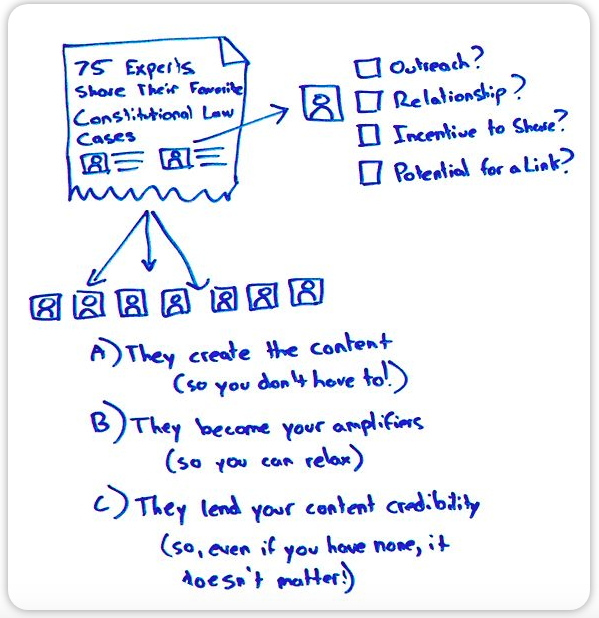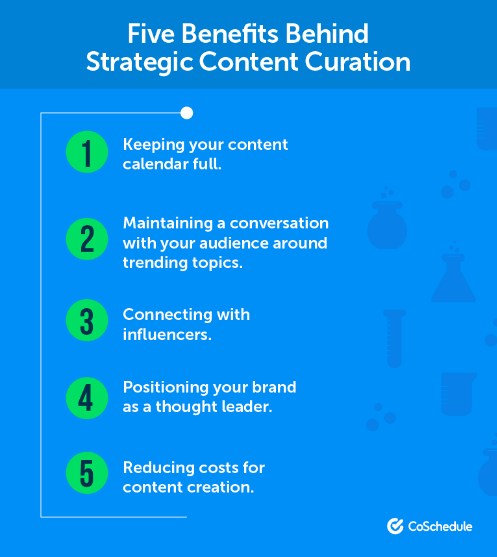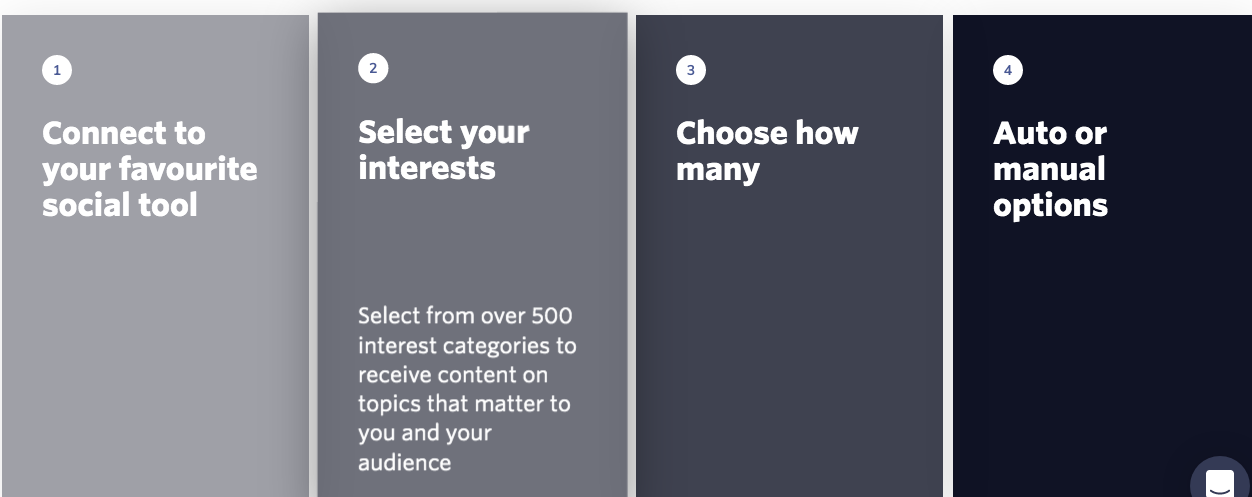In marketing, you should not treat your website competitors as your enemies. Treat them as colleagues or even friends and with respect. Do not be afraid of competitors, either there is a market for both of you or one of you has a problem anyway.
But it will be easier for you to succeed – and much more fun – if you find a positive level of interaction with your website competitors. Plus, your competitors can tremendously help you to reach more success whether they want to or not.
What is a competitor in marketing?
Basically, a competitor is any person from your niche that is in some way a rival. That can be a person or business that offers a product that addresses a similar problem or has similar features.
People, products, or businesses that are competing for the same customers with similar products can have multiple effects on your business:
Before you read on - we have various resources that show you exactly how to use social networks to gain massive traffic and leads. For instance, check out the following:
FREE Step-by-Step Twitter Marketing GuideFREE Pinterest Marketing Ebook
A competitor usually takes a share of the market that you cannot get because it is already taken – or have to fight hard for. Many competitors that are competing for the same audience can reduce your chance to win customers for your products.
Competing offers can also reduce the price you can ask for your offers. If you have a unique product that people need or want, you can ask higher prices than for products for which someone else also offers a solution.
But competitors can also be a sign that there is a market for your solution! If you are tackling a totally new market with not competitors the simple reason could be that there is no market for a solution like yours.
If you have competitors, you need to be clear about why people should decide on your solution instead of the competing offers. This can be the price (are you cheaper?), the quality of the offer (is your solution better, faster, more reliable?) or the branding (are you more famous, is your reputation better, are more influential people talking about you?)
But competitors are not all bad. And instead of being afraid of competitors or treating them as enemies, you can also benefit from your website competitors. And here are some great ideas to “use” your competitors to be more successful.
Collaboration, networking, partnerships
When we started out with content marketing all those years ago there was one thing that we noticed that really stood out:
All those big-name content marketers were interconnected and working together. They guest posted on each other’s blogs. They shared each others content on their social media channels. They interviewed each other. They commented on their blogs. Some worked together on projects. Some wrote books together. Some even visited each other privately for a glass of wine.
The bottom line was: Together we are stronger.
And while this sounds like a close-knit community with no room for newcomers that was not the case.
Hey, before you read on - we have in various FREE in-depth guides on similar topics that you can download. For this post, check out:
FREE workbook: CREATE AWESOME BLOG POSTSFREE Beginner's Guide: START A BLOG
We as new content marketers had the same chances.
We landed guest post opportunities, we got some of the big-name content marketers to comment on our totally new blog, we interviewed them, etc. And all this helped us to grow faster.
Sure, competitors are still competitors. But there is still a lot to be won by knowing them and connecting to them.
I am not telling you to share your newest product or feature idea with all your competitors. But I am totally sure that there is still enough opportunity in a relationship with them.
Maybe your products are not even in competition but together they can form an even stronger product. Maybe they can introduce you to someone that could be of use to you? And believe me, they will do so more willingly if you also treat them as friends or colleagues than when they have the impression that they are your enemy.
And even if they only quote you in one of their blog posts or review your new book on Amazon. Watching marketers collaborate can give you a treasure trove of ideas to profit from your competitors!
Create content with the help of your competitors
Did you know that you can “use” your competitors in your content creation? Here are some examples of content types that you can create with the help of your competitors – but you can be creative and choose other forms of content if you want.
Expert roundups are a form of content where the content creator poses one (or a couple of) questions and asks experts from their niche to answer the question(s). All the answers are then put together for a new piece of content.
Expert roundups allow you to bring much more expertise to your content that you may not have yourself. Provide answers to questions that you could not have answered.
Expert roundups are a great example of cooperation between people from the same niche – or competitors. Both sides of an expert roundup profit from it.
The content creator gets expertise into their content and often the participating experts also help to spread the word about the content they have participated in. This way expert roundups often get an additional audience from multiple sources via shares.
Image Source: MOZ
The experts get a link to their website from the roundup – and they can grow their branding expert status by participation.
A simpler form of content that you can create with the help of your competitors are interviews. You ask a couple of questions and let one expert answer them. Interviews can be more personal than expert roundups. Your competitors are experts in your niche and that means that they can add valuable information to your content – if you ask them to. And most of them will be honored to be asked for an interview!
If you already know some of your competitors through networking they will be more willing to participate in your roundups or interviews. Treating your competitors with respect will help you to get more responses and help you create better content.
If you succeed with your networking and treat other exerts from your niche with respect, you may even get asked to answer an expert roundup or some questions in an interview yourself – because networking usually goes both ways. And that again will help your marketing with building your reputation – and a link back to your website.
And if you are not into expert roundups or interviews, there are similar content types that you can use, check out this post on the MOZ blog.
Content Curation
Social media audience building and traffic generation usually starts with sharing valuable information on your social media accounts. But when you are starting out, the number of valuable pieces of content is usually very limited.
The solution? Content curation.
Your website competitors and experts from your niche are often also content creators. And if you don’t have enough content to fill your social media channels, you can use the content that other people already created to provide value on your social media channels before you have to produce more content.
There are more possibilities for content curation than to fill your social media channels.
You can also use your competitor’s content to create new content for your blog. You can curate different pieces of content on one topic or do a news roundup of new posts from your niche. List the content pieces and add a personal comment or opinion to the list.
As an example, you can check out The Social Scoop. For over 5 years marketing influencer Mari Smith has curated content into a weekly roundup.
The best sources for content to curate are often your competitors.
Follow their copyright – never steal content.
But don’t be afraid to use their content for fear of promoting your competitors. The value you get by using their content is usually far higher than the marketing effect you give them.
The best content curation involves more than just clicking “retweet” on Twitter or “share” on Facebook. To get the best results from curated content you need to consider a couple of steps:
- Which topics would your audience love?
Yes, this is all about your audience. If you curate content, this content should provide value to your audience. - Search for content on the above topics
Yes, good marketing is always related to good research. Don’t just use the first content that you can find on the topic. Make sure that it is great content from sources that you trust! That is part of the value that you add by curating content.
- Share the content in the most beneficial way
When you share curated content make sure that you do it right. Check the headline – your content source my contain awesome content but you know how a headline that would resonate better with your audience? Change the text for your social media shares.
Always add the source account to the share. In a tweet add a via @contentcreator to the headline and link. This can well earn you a retweet, like, or even a follow. And even if you don’t see a direct reaction on your curated share, you may later earn a share from the content creator – because people like to reward other people for nice actions.
Image Source: Coschedule
Yes, curating content for your social media accounts can be time-consuming. There are a variety of tools that can help you with the process. Here are just a couple examples of content curation tools. For more tools check out this list of content curation tools.
Twitter lists and keyword feeds
If you are active on Twitter, you can put all your favorite bloggers on a Twitter list. Whenever you look for content to share on your social media accounts, you can check the feed of this list.
If you are looking for more specific topics and want to broaden the scope, you can set up keyword feeds in Tweetdeck and check the content that gets shared for these keywords.
News Aggregator and RSS reader Feedly
You can also subscribe to all your favorite blogs in Feedly. Whenever new content comes in, you can find it in one place: your Feedly.
Use a Content Curation tool like Quuu
Curation tools like Quuu provide you with content suggestions on your chose topics. You get preselected content that you can share via your favorite scheduling tools.
Learn from your website competitor’s strategy – what are they doing?
There is even more that your competitors can do for your marketing: Teach you.
When you are new to the game, your competitors may already have tried some of the things that you have on your mind for your marketing strategy. And taking a closer look at what your competitors do and how successful it looks can answer many of your marketing questions.
Are you looking for new ideas for your marketing strategy? Or are you just starting out and do not know what to do first?
Check out your competitors – they may have all the answers and you can find them by taking a closer look. You can do a quick check and learn
- What topics are your competitors addressing in their content?
- What types of content are they using?
- Which channels are they using to spread their content? Are they successful?
The answers to the above questions can give you a quick idea of what to do with your marketing on what does not look promising. What content to produce and which distribution channels to use.
Image source: Hubspot
For more insight, it is time to do a full-blown competitor analysis. Which essentially means: Check what your competitors do, figure out what works best from them. Ditch their mistakes and do what works for them – just better 😉
Who are your competitors?
The answer to this question usually includes some research.
Talking to clients and entrepreneurs, this question is not irrelevant. Most people have some names or businesses on their minds when it comes to the question about competitors, but there are always more.
Especially if competitors are not competitors in every aspect. Some of your competitors may only be competitors on paper – because they offer the same product but do not work with the same type of clients. Some competitors will only be competitors in part of your niche.
What products do they offer?
This is important to determine how close the competition is. They may be offering the exact same products – but that is rarely the case. Some will offer a solution to a similar product but the solution is different. Some will offer a product that is similar but not exactly the same.
When you are trying to sell to your audience, the knowledge of the difference and similarities between your offer and your competitor’s offer will directly lead to sales arguments.
What sales tactics and marketing strategy do they use, what is their content strategy
Do they have a blog? What kind of content do they produce? How do they share the content? Which networks are they active in and in which networks do they have the biggest audience? What are they posting on social media?
If you want to know how your competitors sell their products, the first thing you should do is sign up for their email list. There is a lot to be learned from the emails your competitors send to their subscribers!
Most sales are made via the email list. Subscribing to your competitor emails is a good way of seeing most of their sales activities. There is a ton you can learn from the emails your competitors are using to engage, nurture, and turn their subscribers into customers.
Image Source: ContentMender
What is working well, what can you do better?
How many followers have your competitors in various social networks? How engaged does their audience look in the networks? This can help you to decide on which social networks you should be active.
For which keywords do your competitors rank? This can help you find keywords and topics for which you can rank and get traffic from search engines.
Do your competitors engage in guest posting? What are your competitors using as lead magnets or freebies to grow their email list?
You can find the answers to these (and more) questions with a quick research. And you can use the knowledge you gather to build a better marketing strategy and avoid mistakes that you would have made if you had not looked at your website competitors’ marketing strategy!
Final words about your website competitors in your marketing strategy
Getting to know your competitors, their exact products and their marketing strategy is one of the most important steps in finding your marketing strategy. Competition may sound bad – but you have so much to win that you should not close your eyes to your competitors.
Do your homework and find out who your website competitors are. Figure out what content they create and which networks they use. Treat them with respect – and use them to your advantage.
You have a lot to win – and no much to lose!






